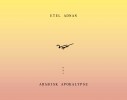The Syntax of the Celtic Languages: A Comparative Perspective
This volume brings together ten chapters on the Celtic languages using the insights of principles-and-parameters theory. The leading researchers in the field examine Welsh, Irish, Breton and Scots Gaelic in comparative perspective, making reference to recent work on English, French, Arabic, German and other languages. The editors have provided a substantial introduction which seeks to make the volume accessible to theoreticians unfamiliar with the Celtic languages and also to Celtic specialists who are less familiar with the theoretical framework underpinning the work. The Syntax of the Celtic Languages makes a substantial contribution both to linguistic theory and to our understanding of the Celtic languages.
• Full coverage of living Celtic languages • Leading specialists in the field • Compares Celtic with a range of non-Celtic languages
ContentsIntroduction Robert D. Borsley and Ian Roberts; 1. Long head movement in Breton Robert D. Borsley, Maria-Luisa Rivero and Janig Stephens; 2. Some syntactic effects of suppletion in the Celtic copulas Randall Hendrick; 3. Fronting constructions in Welsh Maggie Tallerman; 4. Bod in the present tense and in other tenses Alain Rouveret; 5. Pronominal enclisis in VSO languages Ian Roberts and Ur Shlonsky; 6. Aspect, agreement and measure phrases in Scottish Gaelic David Adger; 7. A minimalist approach to some problems of Irish word order Jonathan David Bobaljik and Andrew Carnie; 8. Subjects and subject position in Irish James McCloskey; 9. Negation in Irish and the representation of monotone decreasing quantifiers Paolo Acquaviva; 10. On structural invariance and lexical diversity in VSO Languages: arguments from Irish noun phrases Nigel Duffield; References.
- Forlag: Cambridge University Press
- Utgivelsesår: 2005
- Kategori: Språk
- Lagerstatus: Ikke på lagerVarsle meg når denne kommer på lager
- Antall sider: 376
- ISBN: 9780521023245
- Innbinding: Heftet











